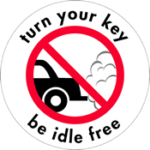
By Adrienne S. Allen, MD PFAS (perfluoroalkyl substances) seem to be all around us. In August, the city of Cambridge switched its water supply, which flows from the Stony Brook Watershed into a reservoir at Fresh Pond, to the Massachusetts Water Resources Authority (MWRA) due to high levels of PFAS in the water. This switch is costing the city $2 million per month. In July, local news reported on PFAS contamination near the Wachusett Reservoir, likely from compost made from sewage sludge. Firefighting foam used on military bases on Cape Cod has exposed residents to PFAS toxicity. Boston Mayor Michelle [READ MORE]





